Some Endings! But Some Really Great Beginnings Also!
This is a big day for all of us here at the Institute of Ecolonomics (IOE). Starting today, we will become regular BLOG ADDICTS!! We have been doing so much at our Northern Colorado Ecolonomic Development campuses that we felt it was time to begin to communicate with you on a very timely basis.
We are going to start this increased and improved communication process by using our Ecolonomic Life Blog, and as time goes on we will be adding other media as additional communication tools (podcasts, webinars, subscriber based research sites, etc.). There will be new information avaiable here and in other places almost daily, so please check here often. We want to make sure we are adding value to your lives as we continue our efforts.
What about the Endings? Well we are ending our drought of inconsistent communication for one. We are also ending our silence about some of the really exciting projects we have been pursuing for the last couple of years.
So lets get to it. What are we up to here at IOE? Well, we are working hard to establish ourselves as a private non-profit research and ecolonomic development business that can assist many entrepeneurs suscessfully launch and build their businesses that will improve the planet. How are we doing that? For one thing, we have developed some world class incubation locations here in Northern Colorado. Today I am going to begin to introduce one of those campus facilities - the Campion Warehouse.
The Campion Warehouse is located on the South side of the city of Loveland, CO, which is about 45 minutes north of Denver at the base of the Rockies and just east of Rocky Mountain National Park. This facility is 5000 square feet in size with about 1000 square feet of offices and conference room facilities, and 4000 square feet of an indoor laboratory. IOE uses the office area for our corporate headquarters offices which is shared with Mountain Sky Group, LLC. The pictures below show some of the office and conference areas in the Campion Warehouse. Oh yes, there are three of our really key people in these pictures – Melissa Morris our unblievable Office Manager and my Personal Assistant, Paul Golden our most recent addition who just received his Masters in Engineering from Stanford, and Matt DeMassino who is our lead aquatic biologist.
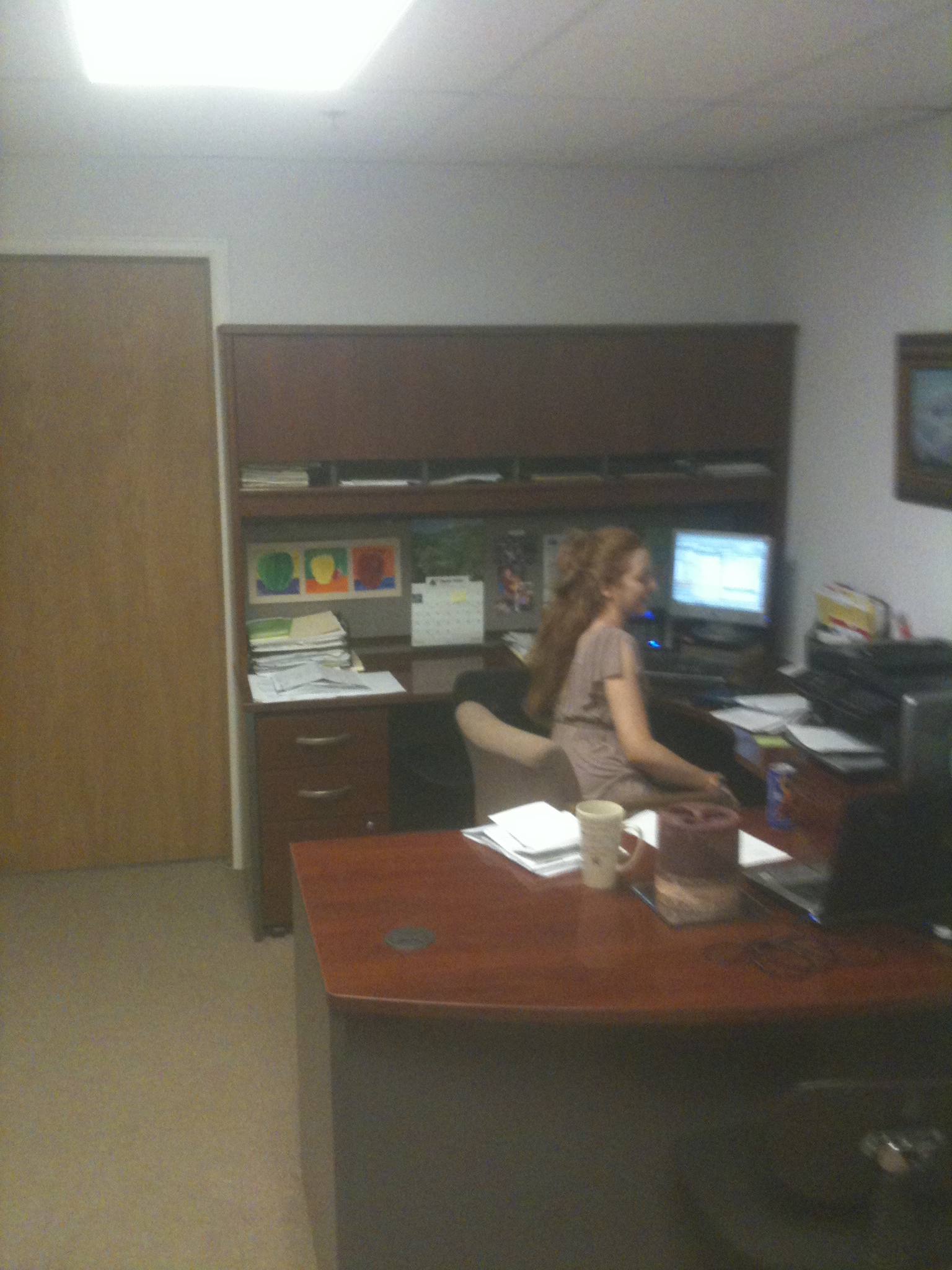
Melissa in our Reception Area
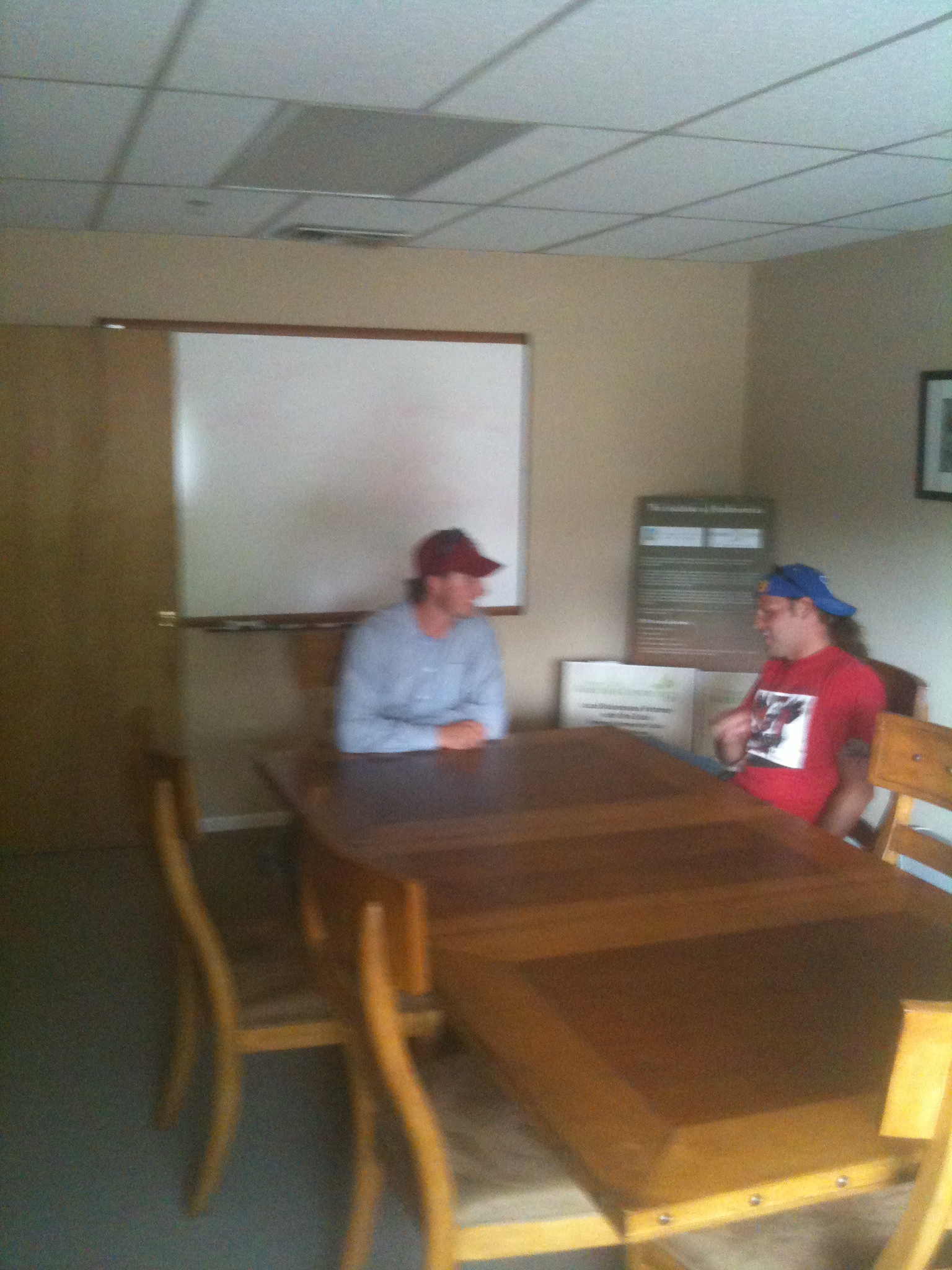
- Paul (left) and Matt in the conference room
In the laboratory we are doing cutting edge research on indoor sustainable agriculture technologies. Currently we are working with aquaculture, aquaponics, coral culture, seed germination in alternative systems, low energy lighting alternatives, vericulture and innovative water treatment technologies. We conduct ongoing experiments using acceptable and reproducible scientific methods. Dr. Wayne Dorband, IOE President, directs this research activity that is managed daily by a group of five scientists and our associated construction group. At this point we are conducting the following specific experiments as well as others at the Campion Warehouse:
- Effects of worm additions to substrate based aquaponic systems (System 1).
- Efficacy of fish species polyculture in small scale commercial recirculating aquaculture systems (Systems 1-4).
- Feasibility of rotating bed hydroponic plant production for commercial systems (System 9).
- Indoor aquaponic plant production using low energy alternative lighting (Systems 1-9).
- Potential for using aquaponics as a filtration source for home aquarioum systems (System 8).
- Potential of culturing South American Pacu in relatively low temperature environments (Aqua System).
As the results of these experiments are obtained, we will briefly describe them here in this format, and we will be publishing more formal scientific reports detailing the experimental outcomes. We have been conducting research in the Campion Warehouse for almost three years, and we have conducted close to fifty different experiments like the ones described above during that time. Again, we will be describing results of those efforts through our future reports. In the pictures that follow you will get a glimpse of some of the current systems (see the experiment descriptions above) that we have here at the Campion Warehouse. We will be providing more detailed photos in future posts.
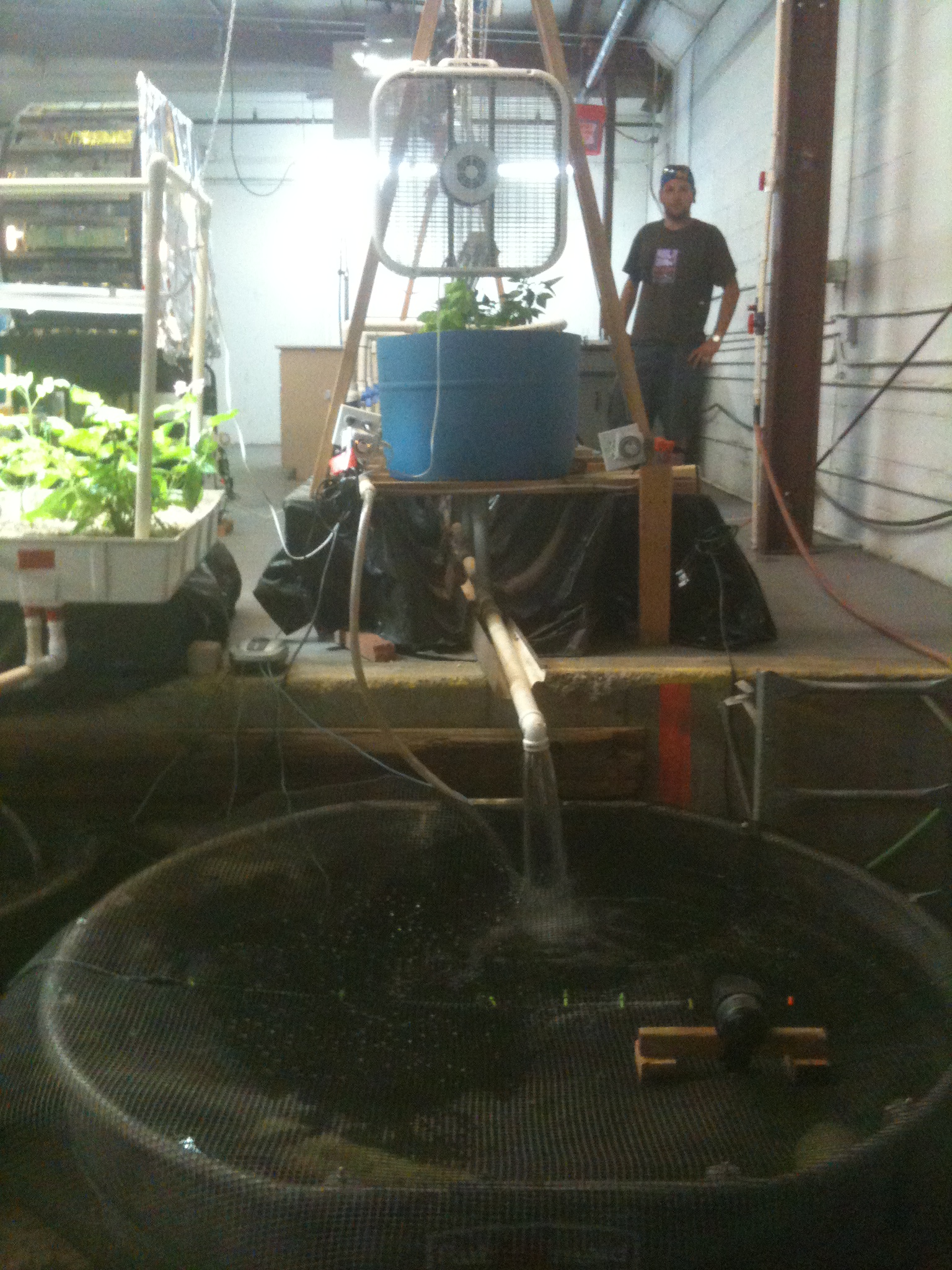
System 1 at Campion Warehouse. 300 gal. fish tank with trout and tilapia. Flood and Drain Aquaponics.
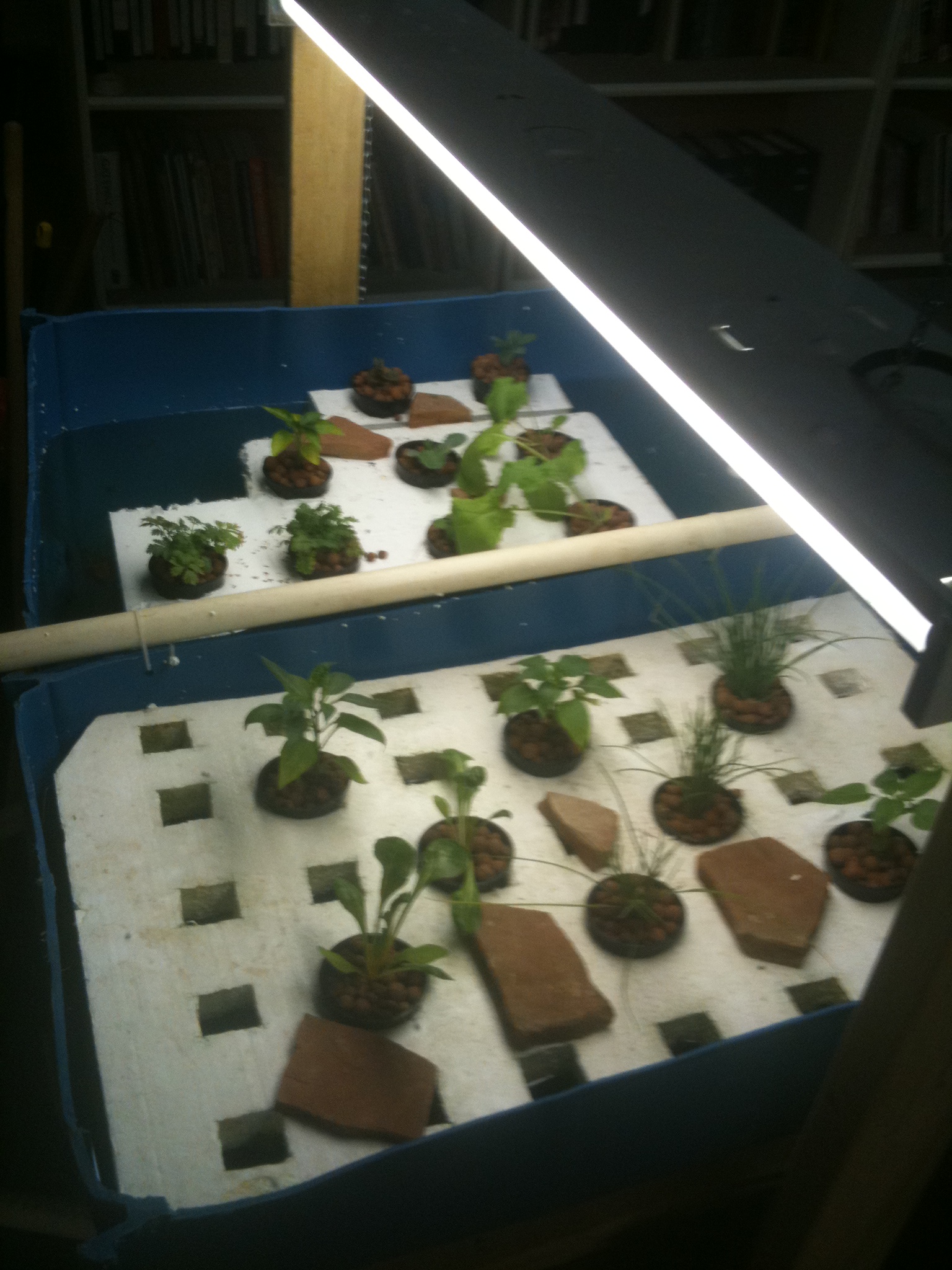
System 8 at Campion Warehouse. Raft aquaponics with minimal bacteriological surface area and T12 flourescent lighting.
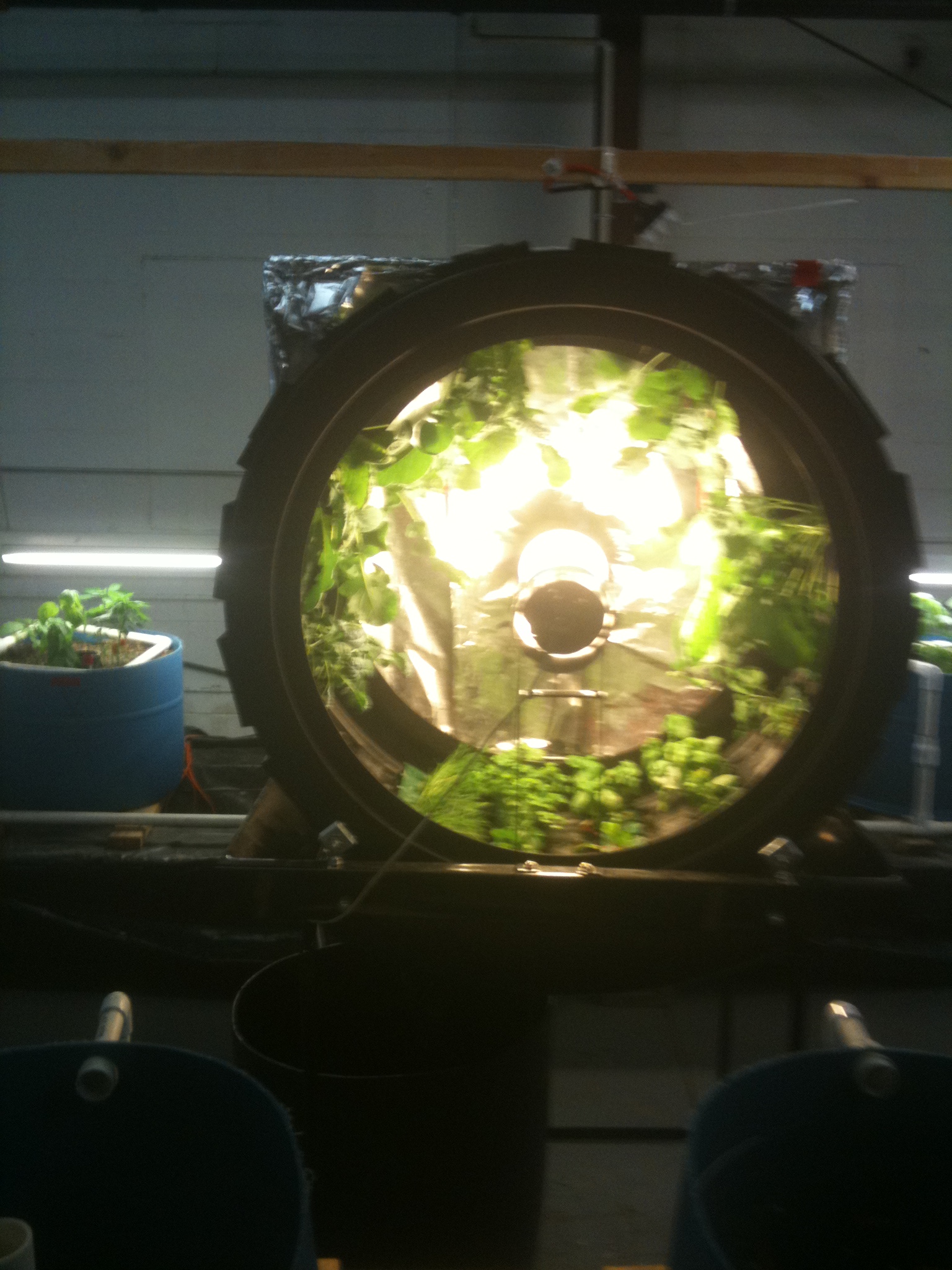
System 9 at the Campion Warehouse. A Volksgarden rotating culture system from our partners in Canada.
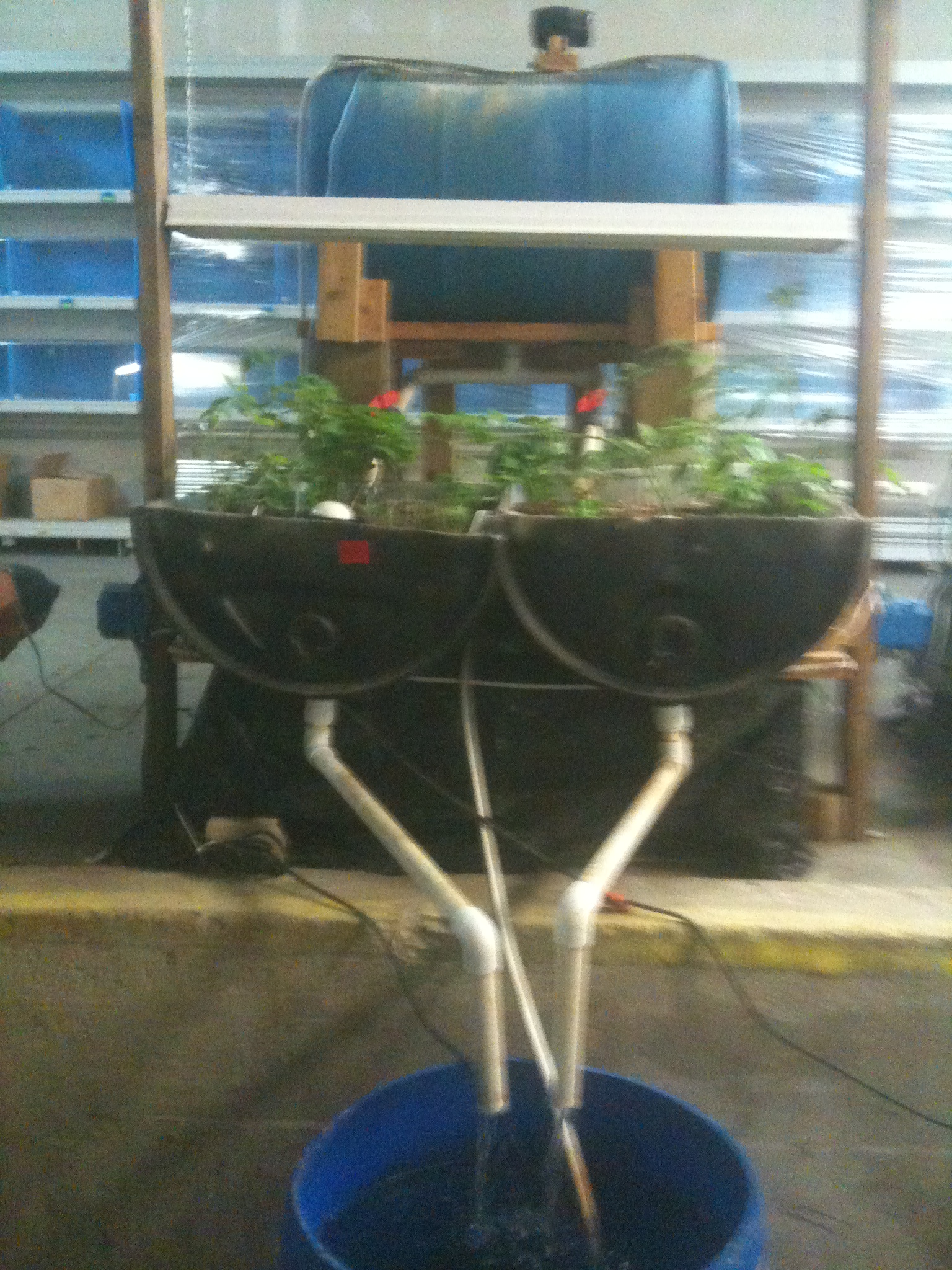
System 3 at the Campion Warehouse. Flood and drain, with sump and fish tank above.
We feel we have a large obligation to the planet right now in this critical time in history. We know that many are probably doing more than we are, but we are trying to do the best that we can. We look forward to sharing what we learn with you and hope you can appreciate what we are doing. Please comment on our reports and give us experiences of your own. Till next time.
